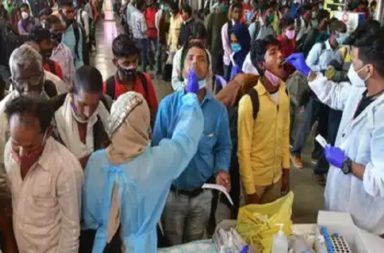More than 39 billion in-school meals were missed globally during the novel coronavirus disease (COVID-19) pandemic due to school closures, according to a new UNICEF report. Since the beginning of the pandemic, nearly 370 million children have not been receiving a school meal in 150 countries, said the report by UNICEF Office of Research and the United Nations World Food Programme (WFP) released on January 28, 2021.
“Despite clear evidence that schools are not primary drivers of COVID-19 infections, millions of children are facing school closures around the world,” said UNICEF Executive Director Henrietta Fore. Children who depend on schools for their daily meals are not only losing out on education but also on a reliable source of nutrition. As we respond to the COVID-19 pandemic and await vaccine distribution, we must prioritize the reopening of schools and take action to make them as safe as possible, including through renewed investments in proven infection prevention measures like clean water and soap in every school around the world, Fore added.
The report titled COVID-19: Missing More Than a Classroom found that 1.6 billion learners in 199 countries worldwide were affected by school closures. About 24 million schoolchildren are at risk of dropping out of school due to the pandemic, which would reverse global progress made on school enrollment, the report said. Overall, the coverage of essential nutrition services (feeding in schools, supplementing micronutrients, promoting nutrition, etc) dropped 30 per in low- and middle-income countries. This also includes programmes for the treatment of severe malnutrition in children, according to the report.
Latest estimates show that 24 million schoolchildren are at risk of dropping out of school due to the pandemic – reversing progress made in school enrolment in recent decades. School feeding programmes can provide incentives for the most vulnerable children to return to school. “Missing out on nutritious school meals is jeopardizing the futures of millions of the world’s poorest children. We risk losing a whole generation,” said WFP Executive Director David Beasley. “We must support governments to safely reopen schools and start feeding these children again. For many, the nutritious meal they get in school is the only food they will receive all day.”
UN agencies urged governments to prioritise schools for reopening while making sure that the health, food and nutritional needs of children are met through school-feeding programs. The UN World Food Programme has been supporting governments to adapt their school meals programs during school closures. In the first nine months of 2020, more than 13 million schoolchildren received the UN World Food Programme school-based support as compared to 17.3 million the previous year.





